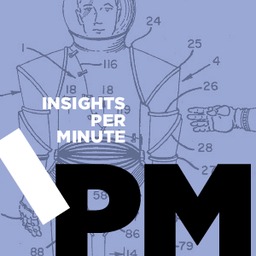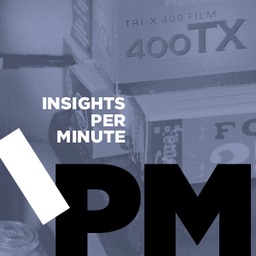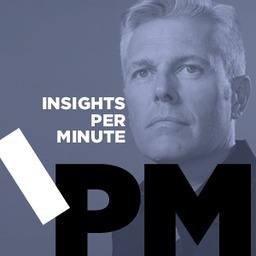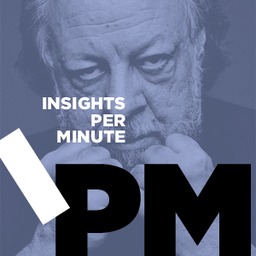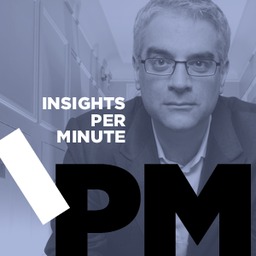Observed
A number of prominent—and progressive—initiatives that once promised to attract women and people of color to the tech industry (including
Girls In Tech and
Women Who Code) are closing. Three reporters at
The Washington Post dig in: “The drop in support for programs that tech companies once touted as a sign of their commitment to adding women, Black people and Hispanic people to their ranks follows a right-wing campaign to
challenge diversity initiatives in court.”
Celebrating Black Business month with two inspiring design legends, Kevan Hall and TJ Walker – the founders of the
Black Design Collective.
Book cover design is a careful navigation between creativity and brute-force market logic. But is it also inherently
racist?
Designer's weigh in on … the
Olympics!
Billed as a “color trend intelligence service,”
Pantone Color Insider provides global data on use of all 15,000 shades in the company color matching system. This year's color?
Peach Fuzz!
Lunacy on LinkedIn.
Brian Johnson—one of the founders of
BIPOC Design History, Creative Director at
Polymode, and a member of the
Monacan Indian Nation — has spent years researching Indigenous design in an effort to help decolonize graphic design by speaking to the field’s racial biases. Links to his essays for
Hyperallergic (including the brilliantly-titled
How Can a Poster Sing?) are
here.
Bring Them Home is a documentary film that highlights a small group of Blackfoot people on their mission to establish—on their own ancestral territory—the first wild buffalo herd since the species’ near-extinction a century ago, an act that would restore the land, re-enliven traditional culture, and bring much-needed healing to their community. The film, directed by Blackfeet (Niitsitapi/ Siksikaitsitapi) siblings Ivan and Ivy MacDonald alongside filmmaker Daniel Glick, has just won
a climate justice award.
What knots in our histories do we need to disentangle? What future relationships do we need to re-weave? Who and what is missing from the connections we make and unmake with our systems and technologies? Spend two days this month in Sweden at
The Conference and "you’ll walk away with new mindsets and materials, teachings and tools, practices and parallels to help get us out of “oh fuck,” and into “now what?”
There are only 75 Māori architects among New Zealand's roughly 2,000 licensed practitioners (and fewer than 10 Pacific Islanders), despite these Indigenous groups making up more than 25 per cent of the country's population—but
Elisapeta Heta is one, and she's got something to say about this—and why it matters. "It's no wonder that our built environments don't necessarily reflect who we are as people," she observes. "There's no diversity in it because it's all been designed through the same Western lens."
Through his charitable organization, Bloomberg Philanthropies, Michael Bloomberg is giving
$175 million each to Meharry Medical College in Nashville, Morehouse School of Medicine in Atlanta, and Howard University College of Medicine in Washington. These donations are believed to be the largest ever to any single H.B.C.U.
An
indigenous design camp for teenagers is the first of its kind in the United States (or maybe anywhere). The goal is to teach Indigenous teens about the range of career options in architecture and design, a field where Native Americans are notably underrepresented.
The functional design elements of the new
Michael Graves Design for Pottery Barn collection leverage ethnographic research across several communities, from those aging in place, to individuals with permanent, situational, or temporary disabilities, to those who are planning for the future without compromise, and those who want their homes to be welcoming to everybody, all without sacrificing good design.
“There is no doubt that domestic harmony is endangered by having a designer about,” Mr. Grange told The Daily Telegraph in 2012. “If you are good at your job you cannot avoid looking at everything and, given half a chance, affecting it. I even have an opinion about a tea towel — I just cannot help it.” British industrial designer (and Pentagram co-founder)
Sir Kenneth Grange has died. He was 95.
It's August! You may be heading out on that much-needed vacation! And how will you get there? Map lovers—and travelers all—rejoice! And
look no further.
Did you know there is a way to dig in deep to stories about the Olympics that are design-focused?
You do, now!
A design-focused conversation about coding, communication, and
the beauty of simplicity.
TBD*—the in-house design studio of the
CCA in San Francisco—is looking for local nonprofit/civic partners needing design help this coming fall.
Details here.
What does it mean to bestow a “
good design” award in today’s design landscape—especially within the context of public space?
A logo conspiracy theory—about the
Olympics?
The recent handoff from Joe Biden to Kamala Harris obliged the campaign's designers to launch a new
Harris for President logo in just three hours: they also crafted an entire brand refresh—including ads and print collateral AND a website—all of which they built out in just over a day. More on this massive (and speedy) undertaking
here.
Our friends at
WXY Architecture and
Jerome Haferd Studio are among four firms that have won a competition to design a series of cultural venues for historic Africatown in
Alabama.
“Our mascot, Phryges, is based on the Phrygian hat, which is a powerful emblem in France on everything from coins to stamps. Phryges is gender-free, which feels appropriate because this is the society we live in. Toys should be for everyone, and not gendered.” An interview with Joachim Roncin, the
designer of the Paris Olympics.
The Society for Human Resource Management (SHRM)
recently announced that it would
eliminate the term “equity” from its Diversity, Equity, and Inclusion (DEI) language. “What organizations like SHRM may or may not realize is that abandoning the work of diversity,
equity, and inclusion causes real harm and serious pain,”
says Amira Barger. “By sidelining equity, SHRM’s move may unintentionally exacerbate something called ‘dirty pain.’”
“As a person who spent the first part of my career as a graphic designer and art director, I immediately saw the visual power and nearly infinite graphic possibilities of this image.” In today's
New York Times,
Charles Blow discusses
the irrefutable power of an iconic photograph.
In New York City,
The Design Trust for Public Space is looking for photographers with “unique lenses on an equitable water future for New York”. Deadline for entry is 11 August. More
here.
One artist's (musical) cry for help—or at least, fewer fast-food franchises in North Adams, Massachusetts.
“My design philosophy is to make people happy and comfortable in their environment,” says the 83-year old Irish designer known simply by her first name—
Clodagh. “Since I don’t know the rules, I can actually break them all the time.”
Design for
accessibility, blessedly, is on the minds of architects and builders all over the world. Given the fact that an estimated
15-20% of the population is neurodivergent, commercial buildings are increasingly working to become more welcoming, inclusive, and comfortable for all individuals.
“While designers are eager for praise and acclaim and create an aura of ostensibly cultured and intellectual pursuit, often involving awards and accolades, design itself takes no responsibility for what happens when things go wrong.”
An excerpt from Manuel Lima's latest book.

